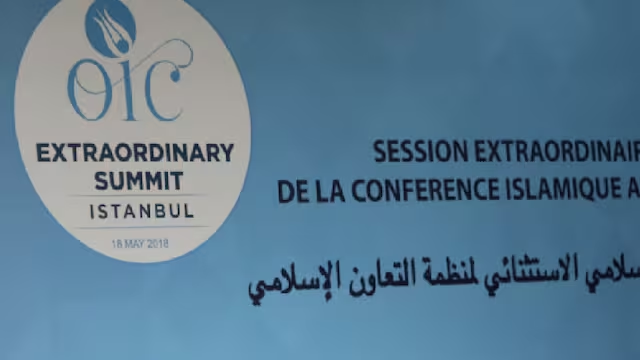India Rebukes OIC Over Kashmir: Rejects Pakistan’s Narrative and Defends Sovereignty
- MGMMTeam

- Jun 24, 2025
- 3 min read
In a strong diplomatic statement, India has condemned the Organisation of Islamic Cooperation (OIC) for its recent remarks on Jammu and Kashmir, calling them “unwarranted and factually incorrect.” The Ministry of External Affairs (MEA) emphasized that the OIC has no locus standi—no legal or moral standing—to intervene or comment on India’s internal matters, especially regarding the sensitive issue of Jammu and Kashmir, which India regards as an inseparable part of its territory.

India's Rejection of OIC’s Kashmir Commentary
India’s response came in the wake of the OIC Council of Foreign Ministers meeting in Istanbul, where Pakistan leveraged the platform to highlight its agenda on Kashmir. The Indian government accused Pakistan of misusing the OIC forum, turning it into a stage for pursuing a narrow political narrative aimed at undermining India’s sovereignty and deflecting attention from Pakistan’s own internal challenges.
The MEA criticized Pakistan’s long-standing practice of weaponizing terrorism as a strategic tool. India pointed out that the OIC’s failure to condemn terror activities originating from Pakistani soil—including attacks like the recent terror strike in Pahalgam—amounted to a deliberate and willful disregard of the facts. Instead of addressing terrorism, the OIC has allowed Pakistan to distort the narrative, an act India warned could seriously damage the credibility of the organisation.
Defending Military Action: Operation Sindoor
India strongly defended its military response following the Pahalgam terror attack, known as Operation Sindoor, describing it as a necessary and legitimate exercise of self-defense. This operation targeted terrorist camps across the Line of Control (LoC) and was carefully calibrated to avoid civilian casualties. By contrast, India accused Pakistan of responding with reckless retaliatory strikes that endangered innocent lives.
The MEA rejected Pakistan’s claims accusing India of “unprovoked and unjustified aggression,” dismissing them as baseless propaganda. India’s position underlines its commitment to safeguarding its citizens while countering terrorism decisively and responsibly.
The Human Rights and Credibility Debate
In addition to the security dimension, India challenged Pakistan’s critiques on human rights issues. The MEA highlighted the irony of a country with a record of human rights violations, which also harbors and supports terrorist groups, positioning itself as a moral authority on such matters. India urged the OIC to avoid becoming a puppet for Pakistan’s agenda, warning that doing so would erode its reputation and relevance on the international stage.
Broader Diplomatic and Historical Context
The Kashmir dispute has long been a flashpoint in South Asian geopolitics. The OIC has historically sided with Pakistan on this issue, frequently issuing statements demanding adherence to UN resolutions that India contests. India, for its part, stresses that Jammu and Kashmir is constitutionally an integral part of the Indian union, a status reinforced by the government’s 2019 decision to revoke Article 370, which ended the region’s special autonomous status. This move, while controversial internationally, is defended by India as an internal matter of constitutional reform.
Meanwhile, India’s foreign policy in recent years has sought to strengthen ties with Muslim-majority countries, particularly in the Middle East and Central Asia, through enhanced trade, investment, and diplomatic engagement. This shift reflects India’s growing confidence and influence in global affairs, positioning it to more assertively counter narratives like those promoted at the OIC.
The United Nations and other international bodies, including the Office of the UN High Commissioner for Human Rights (OHCHR), have raised concerns about human rights conditions in Jammu and Kashmir. These reports are often contested by India as biased or incomplete, while Pakistan actively leverages such commentary to push its own agenda internationally.
Conclusion
India’s robust rebuttal to the OIC’s statements underscores its unwavering stance on Jammu and Kashmir as a sovereign, integral part of the nation. It signals a clear message that external entities, particularly those perceived as influenced by Pakistan, have no legitimate role in commenting on India’s internal affairs. The ongoing diplomatic tussle around Kashmir reflects deeper regional tensions, but India’s emphasis on sovereignty, counter-terrorism, and responsible governance remains firm.
As Pakistan continues to use international platforms like the OIC to amplify its narrative, India is expected to maintain its strategic diplomacy, reinforcing its position through bilateral and multilateral engagements worldwide. For the OIC, the challenge lies in balancing the interests of its member states while preserving its credibility—a challenge made more complex by Pakistan’s persistent attempts to shape the organisation’s agenda.
(Sources: News18, Economic Times)




Comments